Our 15 Most Memorable Interviews About Education, Students & Segregation of 2019
By The 74 | December 22, 2019
This is the latest roundup in our “Best Of” series, spotlighting top highlights from this year’s coverage as well as the most popular articles we’ve published each month. See more of the standouts from across 2019 right here.
Every week here at The 74, we spotlight a new “74 Interview” — a memorable conversation with an educator, expert, advocate or innovator that deepens our understanding of the challenges facing — and being overcome — by schools across the country. Throughout 2019, we published more than 30 longform interviews with key people in the field; here are 15 of the top standouts, in terms of popularity, response and depth of knowledge. (Get every 2020 interview delivered straight to your inbox by signing up for The 74 Newsletter)
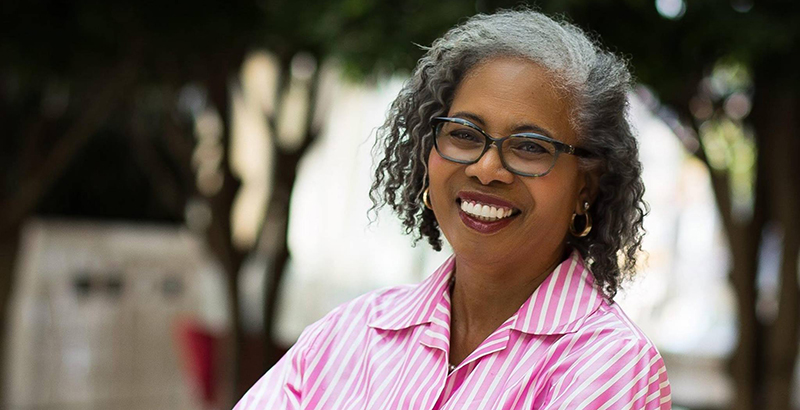
Gloria Ladson-Billings remembers the first time she learned that an African American could graduate from Harvard University: She was in Ethel Benn’s fifth-grade class in Philadelphia. That realization — and Benn’s excellent teaching — set her on a path to find out what makes a great teacher. Since the 1990s, Ladson-Billings has been studying and writing about culturally relevant teaching and what it takes to successfully educate all students, especially the children of color so often left behind. At the core of her educational philosophy are three components of culturally responsive education: academic success, cultural competence and sociopolitical consciousness. Teachers must accept responsibility for bringing all three into their classrooms, she says. Ladson-Billings spoke to The 74 about how teachers can talk to students about current events, the difference between integration and desegregation, and the hallmarks of being a culturally relevant teacher. (Read the full interview)
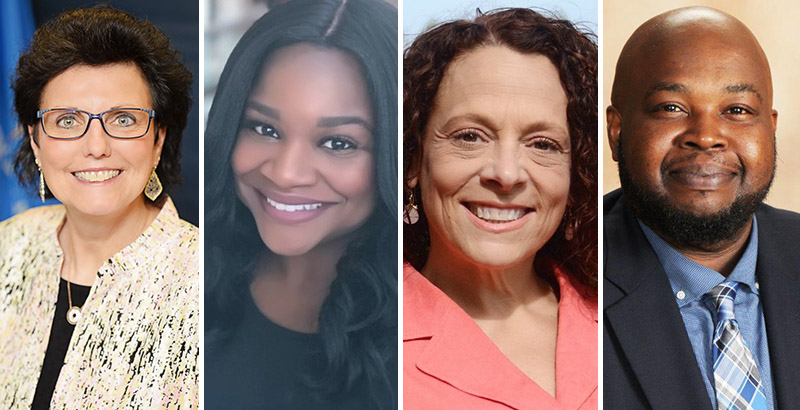
The National Teacher of the Year has become an increasingly prominent — and political — position, with the 2016 honoree now a member of Congress and the 2018 winner challenging the Trump administration’s immigration policies. Carolyn Phenicie sat down with this year’s finalists — Donna Gradel, a science teacher from Oklahoma; Kelly Harper, a third-grade teacher from Washington, D.C.; Danielle Riha, a middle-grades teacher from Alaska; and Rodney Robinson, a teacher at a Virginia juvenile justice center — to talk about how they see the role, their planned platforms and more. (Read the full interview)
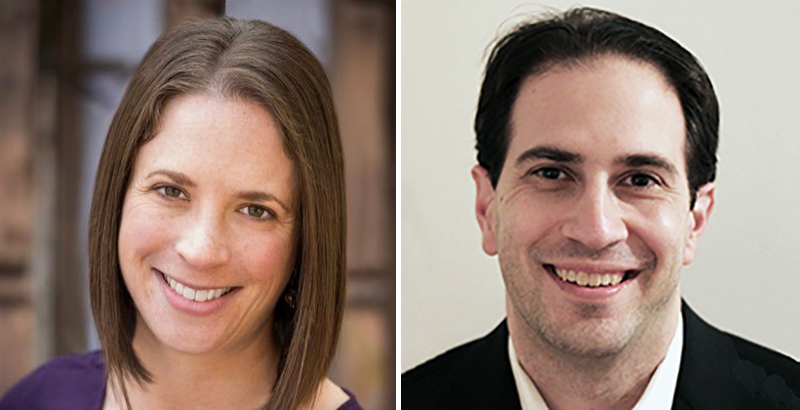
After visiting dozens of high schools for a project that started out as an attempt to find schools that were imparting 21st century learning, authors Sarah Fine and Jal Mehta had to retool their research. They had found deeper learning — students intrinsically motivated to master a skill or subject — but most often in isolated pockets where a skillful teacher had, for reasons of his or her own, purposefully found ways to empower students. The product of their research, a book titled In Search of Deeper Learning: The Quest to Remake the American High School, takes readers inside the schools where Fine, who teaches at the storied High Tech High’s new graduate teacher training program, and Mehta, who is on the faculty of the Harvard Graduate School of Education, sought clues. In a 74 Interview with Beth Hawkins, they talk about the three elements present in classrooms where the deepest teaching was taking place — and how to get more of it. (Read the full interview)
Cheryl Brown Henderson is one of the three children of the late Rev. Oliver L. Brown, namesake of Brown v. Board of Education of Topeka (KS). In this interview, Brown Henderson recounts her personal experience with segregated schools and the story of how Brown v. Board of Education came to be. Brown Henderson is founding president of The Brown Foundation for Educational Equity, Excellence and Research, established in 1988, and owner of Brown & Associates, an educational consulting firm that she established in 1984. Learn more about the Browns and the five cases that were ultimately merged into Brown v. Board and see more testimonials from the families who changed America’s schools at our site: The74Million.org/Brown65. (Watch the full interview)
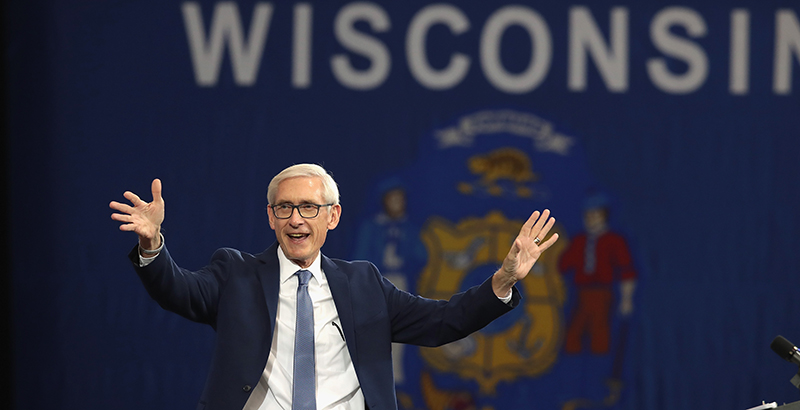
Tony Evers, the former Wisconsin schools superintendent and head of a key education advocacy group during ESSA negotiations, was well known in the education world even before he was elected governor this fall. Evers, who narrowly bested longtime Republican governor Scott Walker, released his first budget proposal, which includes an additional $1.4 billion in education spending over two years, primarily targeted toward low-income students and special education services. “It’s a pretty simple theory of action: If a student is in need of an extra lift, and if that extra lift costs more money, we need to pay for it,” he said. The Democrat is also fighting with state Republicans over his desire to “take a breath” on private school choice. Read his conversation with Carolyn Phenicie. (Read the full interview)
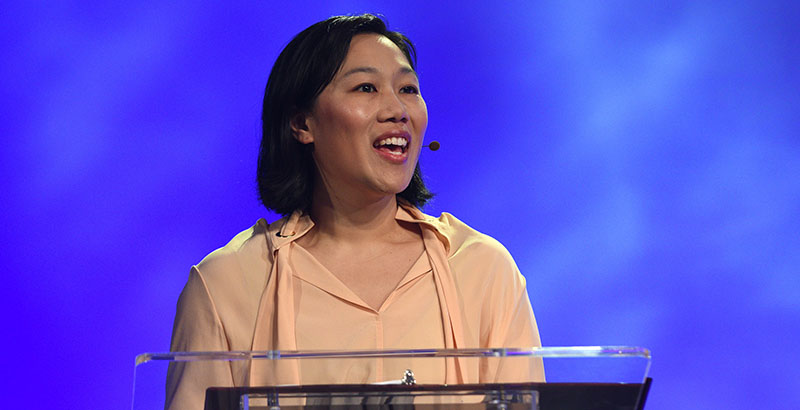
Priscilla Chan may lead one of the country’s most influential education philanthropies now, but she can still vividly recall what it felt like to be the child of poor, immigrant parents, who never felt like she fit in and whose first job at age 6 was family translator. Amid those struggles, Chan recognized that she was still lucky to attend good public schools, to see a doctor when she was sick and to have teachers “who really cared about me and showed me how I could succeed.” Chan spoke at the ASU GSV summit in April, and between that appearance and announcing a $6.9 million grant to help underrepresented students pursue STEM in college, she sat down with 74 contributor Richard Whitmire. The pediatrician and former teacher talked about the Chan Zuckerberg Initiative’s support of whole-child education and how it can lead, she said, not just to success in school, but to “living a fulfilled, purposeful life.” (Read the full interview)
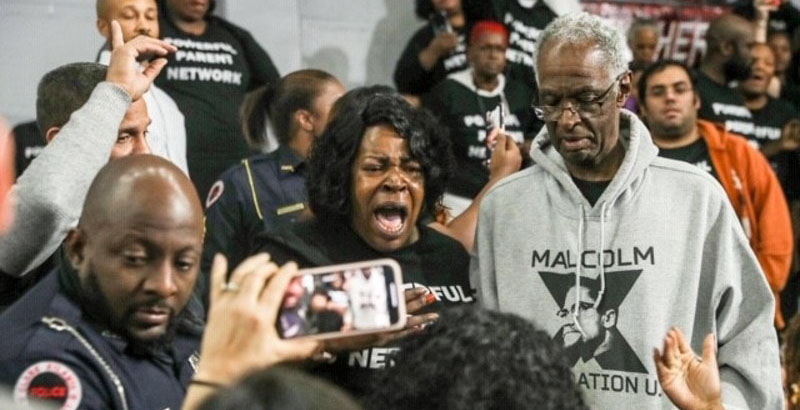
With opposition to public charter schools surging among Democratic presidential candidates, a network of black and brown parents raised money and chartered buses to take their school choice advocacy to Atlanta, where Sen. Elizabeth Warren followed the most recent debate with an event honoring black women’s historic role in civil rights protests. And protest the members of the Powerful Parent Network in the audience did. With them was longtime school choice advocate Howard Fuller, who is determined to make sure Democratic hopefuls know there’s a racial divide in public opinion about charter schools. Fuller participated in the backstage conversation Warren had with organizer and grandmother Sarah Carpenter and other Powerful Parent Network members. In this 74 Interview, he tells Beth Hawkins he doesn’t think Warren — who after the conversation with Carpenter was forced to clarify that one of her children attended private school — saw the disconnect between her celebration of black women’s legacy of protest and her stance on what they see as their right to self-determination. (Read the full interview)
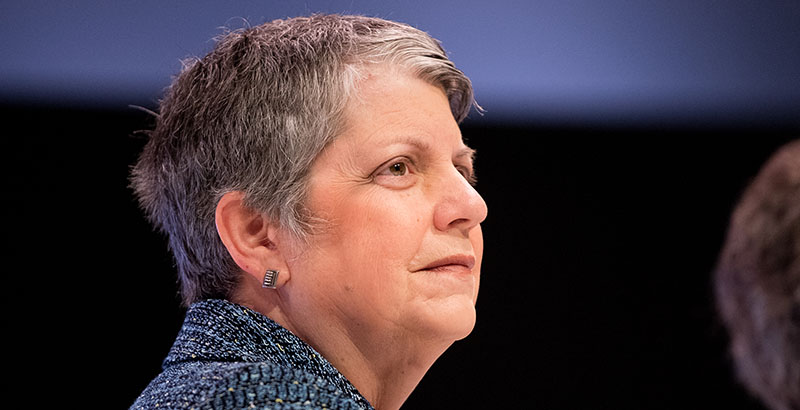
In the United States, roughly 43 million people have outstanding student loan debt, totaling nearly $1.6 trillion. Such a startling burden raises a big question: Is the high price of college worth it? For University of California President Janet Napolitano, who previously served as secretary of homeland security, the answer is a resounding yes. For her, it comes down to simple economics: College graduates tend to earn more money over the course of their working lives. Ahead of her appearance at the Aspen Ideas Festival, where she discussed the value of college, among other topics, Mark Keierleber caught up with Napolitano to discuss a range of hot-button issues, from the college admissions scandal to campus sexual misconduct. On the value of college, she pointed to its crucial role in social mobility. “The one tried-and-true tactic that has worked over American history,” she said, “is access to a quality public higher education.” (Read the full interview)
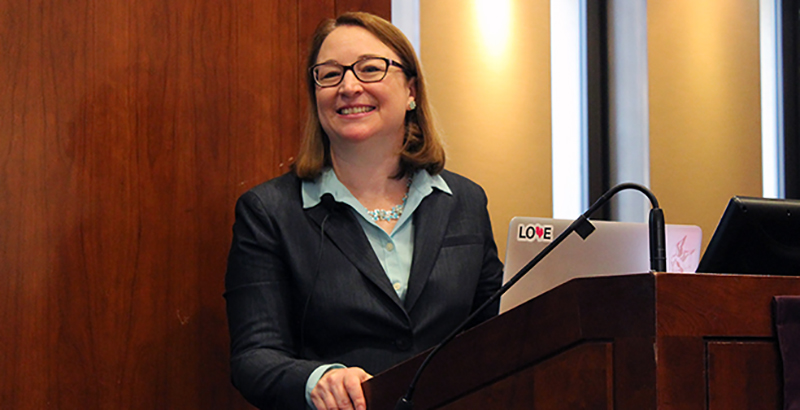
Professor Nell K. Duke has seen her fair share of terrible project-based learning: take-home work, little student collaboration, assignments that have nothing to do with academic standards. But she’s also seen some great examples, where months-long projects allow students in high-poverty schools to create real changes in their communities and make significant academic gains while doing so. The research on project-based learning is still new, but schools across the country have been eager to adopt this model in an effort to teach 21st century skills and better engage their students. Here’s what we know about good project-based learning — and what researchers are still looking to learn. (Read the full interview)
A sex abuse scandal, a budgetary cliff the size of Dover, a big-shouldered political environment — Chicago Public Schools CEO Janice Jackson has challenges. But she’s also got a wave of good news regarding graduation and college attainment to ride. Jackson answers to a mayor who was elected, in part, on campaign promises to reverse course in the nation’s third-largest school district. But as Mayor Lori Lightfoot announced that Jackson will remain in the job, at least for now, the homegrown CEO has successful strategies to build on. Graduation rates, college attainment and persistence rates, high school success levels, career credential completion — a host of indicators suggest her grads’ postsecondary options are up. In a 74 Interview, Jackson talked about her own path to college as a CPS grad and how her time teaching in the district informs the strategies she hopes to build on. (Read the full interview)
Did you pick answer B or C on all the multiple-choice questions? Did you answer in mere seconds? Were you consistent in your wild inconsistency? Chances are the folks who designed the adaptive computer assessment that your school uses to diagnose missing student skills also reveals whether the kids are disengaged — and maybe even why. Steven Wise, a senior research fellow at the nonprofit NWEA, whose computer-based MAP is the granddaddy of adaptive assessments, is an expert on “rapid-guessing behavior,” its causes and what educators might be able to do to promote student engagement — the precursor to getting valid test results. Wise talked to Beth Hawkins about his unusual specialty. (Read the full interview)
U.S. Education Secretary Betsy DeVos frequently seems uncomfortable with the bully pulpit (Exhibit A: grizzly bears) and hasn’t always shined in appearances before the media (See Lesley Stahl, 60 Minutes). So it should come as no surprise that she seldom grants interviews. But in a sitdown with The 74, DeVos showed a different side. She evangelized on the gospel of what she called “education freedom” and pushed back against its critics — including some House Democrats, the national leadership of the NAACP and even the media. She said they are “yelling louder than they have for a long time” and lambasted those “keeping kids from having a better chance and a better future.”
DeVos described her mission as secretary simply: “I have continued to advocate for over three decades for parents who have not been able to make choices for their kids’ education — decisions that wealthy and connected parents have been able to make for decades. That’s one of the main reasons I’m in this job.” In a wide-ranging conversation with reporter Esmeralda Fabian Romero and Executive Editor Laura Greanias, she also discussed education for immigrants and Latino families, and she attempted to explain one of her recent school choice proposals, Education Freedom Scholarships, in language parents can understand. (Read the full interview)
Harvard Graduate School of Education emeritus scholar David Perkins drew his inspiration for his “playing the whole game” approach to education from afterschool activities, including project-based undertakings such as drama, debate and sports. A co-founder of Harvard’s Project Zero, he began exploring the idea while teaching graduate students, looking for “a fresh perspective on how we might imagine learning and what vision of learning might empower students to do something besides tackle the test or essay at the end of the unit.” The approach, he says, suggests that students learn best with real work that resembles what they will likely encounter outside of school. (Read the full interview)
There’s a persistent — and inaccurate —belief that after the Brown v. Board of Education decision, Americans tried hard to integrate schools and it just didn’t work. In his book Children of the Dream: Why School Integration Works, University of California, Berkeley, professor Rucker Johnson instead documents the improved academic and adult life outcomes of black students who experienced integrated schools as compared with their peers who didn’t. The positive effects of integration are multiplied by school funding reforms and high-quality preschool, he argues. Read his whole interview with Carolyn Phenicie. (Read the full interview)
A law professor by training, Jack Coons was a fixture on the education landscape in California for decades and — unbeknownst to most — an influential figure in public education nationally. He litigated the three landmark Serrano v. Priest cases, which challenged California’s school funding structure on the grounds that its reliance on local property taxes created gross financial inequities between wealthy and poor districts. Andy Rotherham and The 74’s Emmeline Zhao traveled to Coons’s Berkeley, California, home to talk about the landscape of public education, past, present and future. Read the top takeaways here — and then watch key interview excerpts below:
Go Deeper: Get the latest education news and analysis – and every single 2020 longform interview – delivered straight to your inbox; sign up for The 74 Newsletter
Get stories like these delivered straight to your inbox. Sign up for The 74 Newsletter
